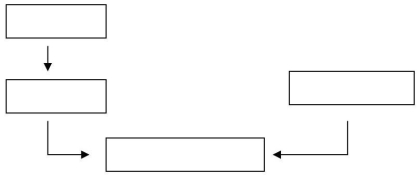Exam 9: Thinking and Intelligence
Exam 1: What Is Psychology430 Questions
Exam 2: How Psychologists Do Research404 Questions
Exam 3: Genes,evolution,and Environment317 Questions
Exam 4: The Brain: Source of Mind and Self537 Questions
Exam 5: Body Rhythms and Mental States327 Questions
Exam 6: Sensation and Perception459 Questions
Exam 7: Learning and Conditioning416 Questions
Exam 8: Behaviour in Social and Cultural Context314 Questions
Exam 9: Thinking and Intelligence258 Questions
Exam 10: Memory325 Questions
Exam 11: Emotion,stress,and Health439 Questions
Exam 12: Motivation262 Questions
Exam 13: Development Over the Life Span287 Questions
Exam 14: Theories of Personality391 Questions
Exam 15: Psychological Disorders322 Questions
Exam 16: Approaches to Treatment and Therapy246 Questions
Select questions type
Tacit knowledge refers to strategies for success that are not explicitly taught but instead must be inferred.
(True/False)
4.8/5  (30)
(30)
If the human mind can be likened to a computer,then the visual images could be likened to the images that appear on the screen of the computer.What results have been found that would support this analogy?
(Essay)
4.7/5  (37)
(37)
Research on human cognition reveals that not all mental processing is conscious.
(True/False)
4.9/5  (38)
(38)
The tendency to overestimate one's ability to have predicted an event once the outcome is known is called:
(Multiple Choice)
4.8/5  (36)
(36)
As an Asian woman,Min-Hye is aware of the stereotypes that Asians are good at math and that women are not good at math.When Min-Hye fills out a questionnaire about her ethnicity and then is given a math test,it is most likely that:
(Multiple Choice)
5.0/5  (34)
(34)
According to our textbook,intelligence is defined as a measure of memory and vocabulary that was originally computed by dividing a person's mental age by his or her chronological age.
(True/False)
4.9/5  (34)
(34)
A person who is low in emotional intelligence is likely to misread the nonverbal signals of others.
(True/False)
4.8/5  (34)
(34)
The text discussed four elements of cognition: concepts,mental images,cognitive schemas,and propositions.In the diagram below,fill in the appropriate labels to create a visual summary of the elements of cognition.

(Essay)
4.9/5  (36)
(36)
Define your terms! In Chapter 1 we learned that this was an important guideline in regard to critical thinking.People refer to intelligence all the time,but how is intelligence defined? Does the musical genius of a world-class violinist such as Anne-Sophie Mutter count as intelligence? Based on your reading of Chapter 9,describe different ways that intelligence has been defined.
(Essay)
4.8/5  (34)
(34)
Dominic is being administered the Stanford-Binet.It is most likely that he will be asked to:
(Multiple Choice)
4.9/5  (44)
(44)
According to our textbook,intelligence is defined as an inborn,global characteristic of an individual usually defined as the innate ability to acquire information.
(True/False)
4.7/5  (30)
(30)
________ is defined as learning that occurs when you acquire knowledge about something without being aware of how you did so and without being able to state exactly what it is you have learned.
(Multiple Choice)
4.8/5  (37)
(37)
________ is the tendency to falsely attribute human qualities to nonhuman beings.
(Multiple Choice)
4.8/5  (44)
(44)
According to our textbook,intelligence is defined as the learned ability of an individual to become aware of his or her own mental processes,using these processes to become knowledgeable about the external world.
(True/False)
4.9/5  (36)
(36)
A third-year science student is most likely to describe ________ as an example of an intelligent person.
(Multiple Choice)
4.8/5  (30)
(30)
Intuition involves two stages of mental processing.The first stage is ________ and the second stage is ________.
(Multiple Choice)
4.7/5  (37)
(37)
A proposition is a unit of meaning that is made up of concepts and expresses a single idea.
(True/False)
4.8/5  (40)
(40)
Showing 101 - 120 of 258
Filters
- Essay(0)
- Multiple Choice(0)
- Short Answer(0)
- True False(0)
- Matching(0)